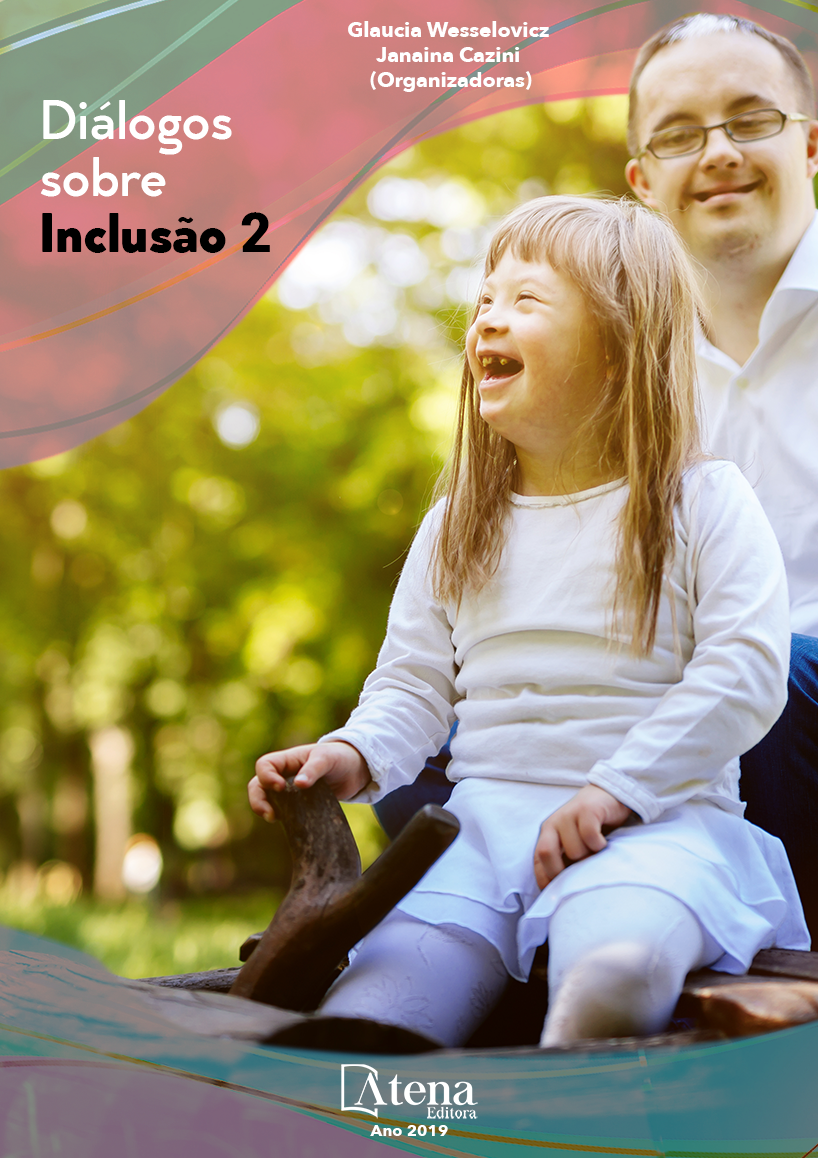
ESTUDO DE CUNHO ETNOGRÁFICO DA EXPERIÊNCIA DE ALUNOS COM DEFICIÊNCIA VISUAL NO ENSINO SUPERIOR: SIGNIFICADOS E EVIDÊNCIAS
A inclusão de alunos com deficiência
visual no ensino superior é um direito e, estudos
têm demonstrado como as universidades
precisam se organizar para lhes oferecer
condições acessíveis, tanto no ingresso quanto
na formação. O objetivo principal deste trabalho
é analisar os significados e evidências das
experiências de alunos referentes à história
da deficiência visual e recursos didáticos e/
ou pedagógicos utilizados no ensino superior.
O aporte teórico compõe discussões sobre
politica educacional de inclusão de alunos
com deficiência, educação inclusiva, práticas
que eliminam barreiras de comunicação no
ensino superior, conceito de deficiência visual,
recursos didáticos disponíveis para pessoas
cegas: Brasil, 2008; Booth; Ainscow, 2002;
Siqueira; Santana, 2010; Castanho; Freitas,
2005; Rodrigues, 2004; Rocha; Miranda,
2009; Ferrari; Sekkel, 2007 entre outros. A
metodologia consiste em uma pesquisa cunho
etnográfico, sobretudo porque faz uso de
técnicas que tradicionalmente são associadas
à etnografia, como observação participante,
entrevista semiestruturada e análise de
documentos. Os resultados evidenciam que a
partir da compreensão da educação inclusiva
como o oferecimento de um sistema regular
de ensino, uma educação de qualidade
para TODOS, em equidade de condições e
possibilidades educacionais no ensino superior.
Concluímos que é preciso compreender que
as singularidades e diversidades das histórias
dos alunos com deficiência visual da UFC
caracterizam as suas condições visuais e
necessidades educacionais, os usos e/ou não
usos de recursos especializados, nas suas
experiências acadêmicas na UFC podem
certamente determinar ações e condutas a
serem adotadas pela instituição de forma a
favorecer a inclusão.
ESTUDO DE CUNHO ETNOGRÁFICO DA EXPERIÊNCIA DE ALUNOS COM DEFICIÊNCIA VISUAL NO ENSINO SUPERIOR: SIGNIFICADOS E EVIDÊNCIAS
-
DOI: 10.22533/at.ed.63719280516
-
Palavras-chave: Ensino Superior. Educação Inclusiva. Deficiência Visual. Etnografia.
-
Keywords: Higher Education. Inclusive education. Visual deficiency. Ethnography
-
Abstract:
The students’ inclusion with
visual deficiency in the higher education is a
right and, studies have been demonstrating as
the universities need to organize to offer them
accessible conditions, in the entrance and in
the formation. The main objective of this work
is to analyze the meanings and evidences
of the students’ experiences regarding the
history of the visual deficiency and resources
didactic and/or pedagogic used in the higher
education. The theoretical contribution
composes discussions on it politicizes education of students’ inclusion with deficiency,
inclusive education, practices that you/they eliminate communication barriers in the
higher education, concept of visual deficiency, available didactic resources for blind
people: Brazil, 2008; Booth; Ainscow, 2002; Siqueira; Santana, 2010; Brown; Freitas,
2005; Rodrigues, 2004;Rocha; Miranda, 2009; Ferrari; Sekkel, 2007 among others.
The methodology consists of a research coin etnográfico, above all because he/
she makes use of techniques that traditionally are associated to the ethnography, as
participant observation, glimpsed semiestruturada and analysis of documents. The
results evidence that starting from the understanding of the inclusive education as
the offer of a regular system of teaching, a quality education for ALL, in justness of
conditions and education possibilities in the higher education. We concluded that is
necessary to understand that the singularities and diversities of the students’ histories
with visual deficiency of UFC characterize their visual conditions and education needs,
the uses and/or no uses of specialized resources, in their academic experiences in
UFC certainly can determine actions and conducts to be adopted by the form institution
to favor the inclusion.
-
Número de páginas: 15
- Ana Cristina Silva Soares


